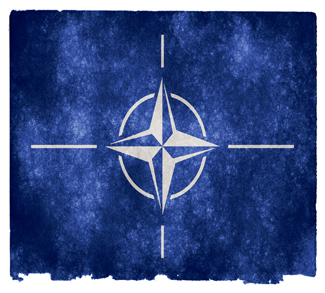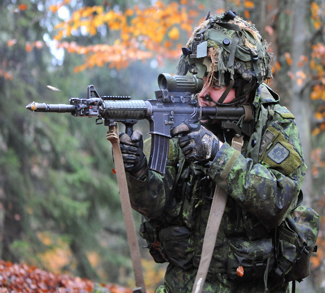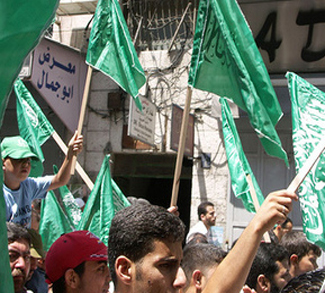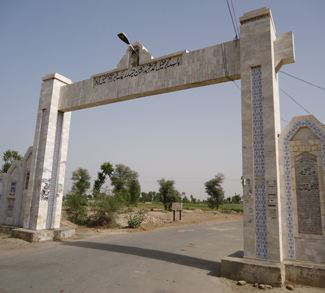FORECAST
According to Brigadier Mark Carleton-Smith, departing commander of British forces in Afghanistan, the war in Afghanistan is about reducing the insurgency to a manageable level that is not a strategic threat. It appears that NATO is realizing what the Russians were telling them all along: victory in Afghanistan is not achievable. However, it is the politicians who seem oblivious to this predicament.
The framework for decisive victory in war has been espoused by key historical philosophers and strategists from Sun Tzu to Machiavelli to von Clausewitz, and when the great powers discussed ‘Victory in Europe’, unconditional surrender, the destruction of Nazi Germany, and elimination of her ability to make war were commonplace.
One would assume that this framework for victory remains the same in present and future conflicts. Yet Brigadier Carleton-Smith recently announced that victory in the traditional sense may not be attainable in Afghanistan, and that instead, it is “about reducing the insurgency to a manageable level that is not a strategic threat and manageable by the Afghan National Army”, as well as entering into negotiations with the Taliban.
Carleton-Smith’s admission about the impossibility of a decisive military victory is something not shared by his political masters, thus providing an invaluable snapshot into how well the war is truly being fought.
Despite the best efforts of politicians and public relations firms to present a positive story of progress in Afghanistan, Carleton-Smith’s comment is perhaps the clearest indication that things are not going well. After years of fighting, the question is how much closer is NATO to victory? The original objectives of the Afghan war were to eliminate Osama bin Laden, destroy Al Qaeda and its ability to project power abroad, and create a functional state in Afghanistan according to Western standards.
Today, Bin Laden is nowhere to be seen and occasionally taunts the US with recordings from a cave somewhere in Pakistan; Al Qaeda still maintains an ability to utilize effective terrorism, as Bali, Madrid, and London reveal; and Kabul, the centre for an ineffective and corrupt Karzai government, has become somewhat of a city-state with an inability to project power beyond its limits. Meanwhile, the International Security Assistance Force (ISAF) is left to patrol the lawless countryside, running over IEDs and taking casualties. Beyond this, the war threatens to widen to neighbouring Pakistan.
In terms of measuring progress towards victory, NATO appears to be moving in the wrong direction. In addition to the threat of involving Pakistan, the overshadowing problem with NATO is a lack of combat troop commitments. NATO is attempting to occupy Afghanistan with a deployment of approximately 50,000 soldiers outweighed by billions of dollars of military technology. Of those 50,000 troops, a significant percentage from countries such as Spain, Italy, and Germany have certain restraints or “caveats” placed on them by their home governments, forbidding deployment to combat zones. These caveats make it increasingly difficult for commanders on the ground to distribute forces to areas required, resulting in troops from other countries, such as the UK, Canada, the Netherlands, and the US taking on the brunt of the fighting.
In contrast to the sheer manpower employed in the D-Day invasions of the Second World War that led to decisive military victory, NATO is attempting the same by relying on military technology and minimal combat forces. NATO is facing a lack of political will power to fight this war and its member governments have developed a philosophy of replacing troops with technology in the hopes of achieving victory with minimal casualties. The end result is Afghanistan, as well as Iraq and the Balkans–wars that are neither won nor lost.
In the end, NATO’s accomplishments in Afghanistan will reflect the wavering determination of the politicians who decided to take the war to Afghanistan in the first place. This may be why Carleton-Smith allowed his frustrations to surface earlier this month. ‘Victory in Afghanistan’ may end up being a withdrawal, leaving Afghanistan in such a mess that it cannot successfully project an international threat. Perhaps this is good enough. Yet the irony is that this is the type of environment where Al Qaeda can function best.
SUMMARY OF EVENTS: October 20 – 27, 2008
WORLD
About 20 million people could lose their jobs by the end of next year due to the impact of the global financial crisis, the head of the International Labor Organization (ILO) said on Monday.
World leaders will meet Nov. 15 in Washington to address the global financial crisis – the first in a series of summits to mitigate what economists predict could be a long and deep downturn.
OPEC is set to announce a cut to its oil output at an emergency meeting in Vienna on Friday in a bid to support crude prices, which are plunging as recession fears hit demand for energy worldwide.
OPEC said Friday it will slash oil output by 1.5 million barrels a day from November 1 as it seeks to shore up crude prices, triggering a verbal backlash from recession-threatened Britain and the United States.
The global financial crisis inflicted more pain Friday on a wide range of corporate sectors, prompting heavy losses in stock markets, while the IMF readied a rescue of some 200 billion dollars for debt-laden countries.
NORTH AMERICA
United States
Washington does not want to alter a draft security pact with Iraq, despite demands for change from Baghdad where the document failed to win support from Iraqi political leaders, U.S. Defense Secretary Robert Gates said on Tuesday.
European nations could contribute more to NATO’s mission in Afghanistan if Washington poured in more resources itself and provided a compelling strategy, the U.S. ambassador to NATO said on Thursday.
Former Federal Reserve Chairman Alan Greenspan said a “once-in-a-century credit tsunami” has engulfed financial markets and conceded that his free-market ideology shunning regulation was flawed.
WESTERN EUROPE
The European Union (EU) said Tuesday it would urge China and India, the two largest emerging economies, to take part in a planned world summit on reform of the global financial system.
Britain
Government plans to build a giant database holding information about every phone call, email and internet visit were last night dealt a major blow after the man in charge of prosecuting terrorism in England and Wales warned of the dangers posed by a “Big Brother” security state.
Britain’s use of anti-terror laws to freeze the assets of failing Icelandic banks shows how such legislation can be abused for purposes other than originally intended, according to a UN independent expert.
EASTERN EUROPE
Georgia
Georgia’s Foreign Ministry has accused Russia of reneging on its ceasefire obligations and continuing “military provocations,” the Novosti Georgia news agency reported on Tuesday.
A global donors meeting on Wednesday pledged 4.55 billion dollars (3.5 billion euros) in aid to conflict-stricken Georgia, much higher than anticipated, the EU commission announced.
Georgia has outlawed investment in its breakaway South Ossetia and Abkhazia regions and imposed entry restrictions on foreigners, under legislation designed to isolate the two Russian-backed territories.
Russia
Russia, Iran and Qatar made the first serious moves Tuesday toward forming an OPEC-style cartel on natural gas, raising concerns that Moscow could boost its influence over energy markets spanning from Europe to South Asia.
The sanctions imposed by the United States on Russia’s state-run arms exporter contravene international law and will affect ties with Washington, Russia’s foreign minister said Friday.
MIDDLE EAST
Iraq
A pact to allow U.S. troops to stay in Iraq for three more years is unlikely to win approval in Iraq’s parliament before the U.S. presidential election on November 4, Iraqi Foreign Minister Hoshiyar Zebari said.
Iraq has warned it would not be bullied into signing a security pact with the United States despite US leaders warning of potentially dire consequences if it failed to approve the deal.
Israel
The creation of a new Israeli government hung in the balance on Friday after a powerful ultra-Orthodox party said it would not join a coalition headed by prime minister designate Tzipi Livni.
EAST ASIA
Asian stocks fell on Wednesday as poor U.S. corporate results and falling commodity prices fanned worries of a protracted global economic slowdown.
SOUTH ASIA
Afghanistan
NATO members are wavering in their political commitment to Afghanistan, one of the alliance’s top commanders said on Monday, describing the nearly seven-year-old campaign against the Taliban as disjointed.
India
India launched its first unmanned moon mission on Wednesday following in the footsteps of rival China, as the emerging Asian power celebrated its space ambitions and scientific prowess.
Pakistan
At least 10 people were killed and several injured when a suspected U.S. drone struck Miranshah area of Pakistan’s North Waziristan tribal agency on the Afghan border, local media reported.
AFRICA
Libya
Libya may agree to buy more than $2 billion worth of Russian weapons during a visit by Muammar Gaddafi to Moscow this month, Interfax news agency reported on Monday, citing an unidentified source in Russia’s arms industry.
Zimbabwe
Southern African leaders postponed a summit on the Zimbabwean political crisis Monday and moved it to Zimbabwe after opposition leader Morgan Tsvangirai boycotted the talks because he was not given a passport to travel abroad. The leaders said the meeting would convene next Monday in Harare.
Marko is a contributor to Geopoliticalmonitor.com




